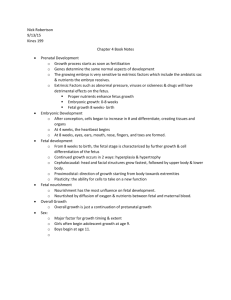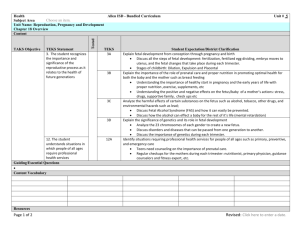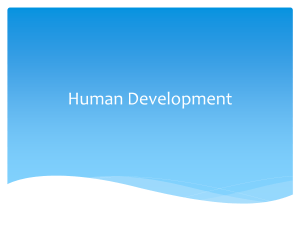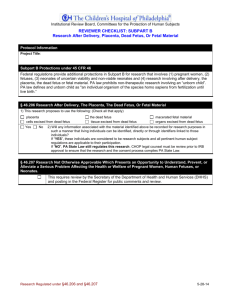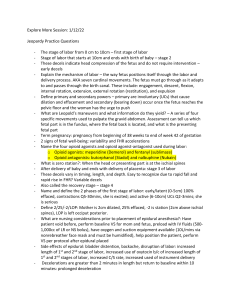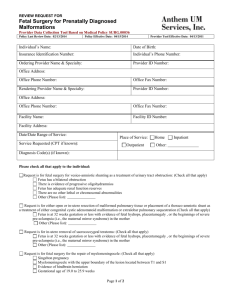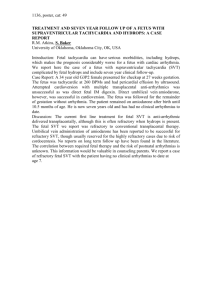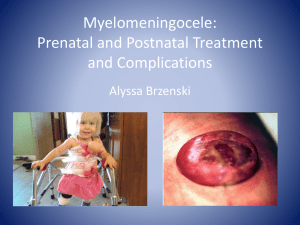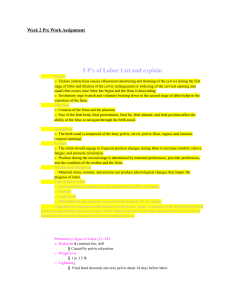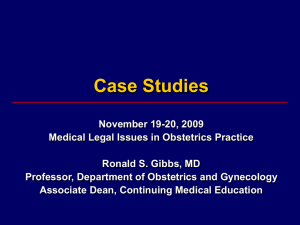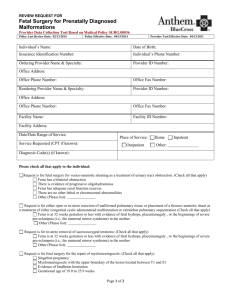TERATOGENS
advertisement
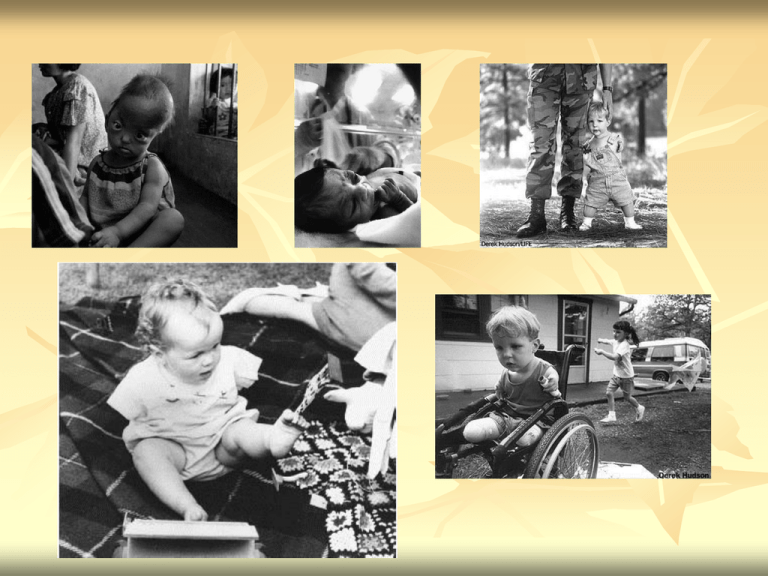
Teratogen: Any environmental agent that has an adverse influence on fetal development May be substances that are added to the fetal environment May also be substances that are deficient to the fetal environment Types of Teratogens Prescription Drugs Industrial Chemicals Social/Illegal Drugs Disease Radiation/Chemical Warfare Maternal Influences Determining the extent of damage to the fetus depends on……. 1. TIME and DURATION of exposure Exposure during the period of organogenesis (when major organs begin to form) will result in major impairments and malformations Exposure during the fetal period results in growth impairments and delay Determining the extent of damage to the fetus depends on……. 2. Genetic Susceptibility The genotype of mother and genotype of fetus play an important role. Example: The way the mother metabolizes a certain drug will determine what and how much the fetus will be exposed to. Metabolism (from Greek: μεταβολή "metabolē", "change" or Greek: μεταβολισμός metabolismos, "outthrow") is the set of chemical reactions that happen in living organisms to sustain life. These processes allow organisms to grow and reproduce, maintain their structures, and respond to their environments. THINK, PAIR, SHARE 1. Think of some examples of TIME (how many weeks gestation) and DURATION (how long was the mother exposed to the toxins) What kinds of toxins could someone be exposed to over a long period of time? What kinds of toxins might need only a little bit of time to cause damage? Teratogen Chart Thalidomide (prescription drug) Was a prescription drug sold mainly during the late 1950’s early 1960’s, used to alleviate morning sickness. Critical period for exposure is during organogenesis Specificity of malformations is linked to time of exposure: 35-37 days- no ears 39-41 days- no arms 41-43 days- no uterus 45-47 days- no tibia 47-49 days triphalangeal thumbs Industrial Chemicals Cleansers, varnishes, lacquers, resins, leads, pesticides, herbicides (agent orange) and mercury (Minimata Disease) Illegal Drugs, Alcohol and Tobacco Low birth weight Born addicted to drugs Withdrawal symptoms Fetal Alcohol syndrome Behavioral problems/impulse control Radiation/Chemical Warfare Maternal Disease Rubella Herpes simplex, AIDS Chickenpox If the mother has these diseasescan cause serious malformations, mental retardation and miscarriage or Infant mortality. Other Maternal Influences Malnutrition (lack of necessary vitamins, minerals and proteins) Stress/Anxiety Altered Metabolism (Diabetes mellitus) Fetal Origins Hypothesis Fetal Origins Hypothesis “the environment experienced during the individual’s prenatal life ‘programs’ the functional capacity of the individual’s organs, and has subsequent effect on the individual’s health” (Slater& Lewis, 2007) Fetal Origins Hypothesis Fetus develops a predictive adaptive response to the prenatal environment Fetus develops according to its current environment When environment is lacking the fetus goes into survival mode and resources are redistributed ACTIVITY Go to www.otispregnancy.org Click on “FACTSHEETS” in the right toolbar Choose 1 factsheet to research Make an informative flyer including: Definition Common reason a woman would ingest/be around this substance In your own words: Can this substance cause birth defects? Conclusion: What would you suggest if someone asked you if it was ok to take that substance? References http://a.abcnews.com/Health/popup?id=4610286&contentIndex=1&page=2 &start=false http://www.kianh.org.uk/agentorange.htm http://hidhist.wordpress.com/category/gulf-war-syndrome/ http://www.who.int/violence_injury_prevention/violence/world_report/fact sheets/ft_child.pdf http://www.who.int/ceh/risks/en/ http://carolguze.com/text/442-13-teratogens.shtml http://www.pixelpress.org/chernobyl/index.html http://books.elsevier.com/companions/0240804155/crack/crack1.htm http://www.whale.to/a/gulf32.html http://embryology.med.unsw.edu.au/Defect/rubella.htm (awesome website!!) Slater, A. & Lewis, M. (2007). Introduction to infant development. New York: Oxford University Press.
